On 16thOctober 2018 the 7th Sino-French Administrative Litigation Seminar, which is sponsored by China-EU School of Law and supported by the School of Law-based Government ofChina University of Political Science and Law, the 8th University of Paris (Université de Paris VIII) and the French Embassy in China, is successfully held in theInternational Exchange Centre of the China University of Political Science and Law.The theme of this conference is “TowardsEffective Administrative Litigation”. The experts and scholars at the meeting conducted extensive and in-depth discussions on the orientation of administrative litigation, the recentreform on the effectiveness of administrative litigationin China and France and the direction of future efforts.
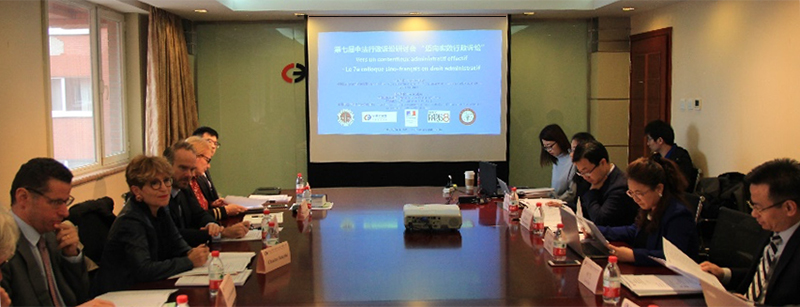
At the opening ceremony, Mr. Anthony Manwaring, Counselor of Legal Affairs of the French Embassy in China, made a speech on behalf of the French side. He said that the China University of Political Science and Law always maintains good relations with the French legal and judicial circles and the administrative law circles of China and France are closely connected which has greatly promoted the academic development and legislative judicial practice in related fields. While he hoped forthe complete successof this conference, he also hoped that the branches of legal exchanges and cooperation between China and France would flourish. ThenProfessor Liu Fei, Dean of China-Europe Law School ofChina University of Political Science and Law, made a speech on behalf of the Chinese side. He said that the China-EU School of Law ofChina University of Political Science and Lawaims to cultivate legal talents and promote the exchange of laws between China and the EU. This is also the reflection of the purpose of seminar. He wished to take this opportunity to further strengthen cooperation with the French side, promote effective administrative litigation, substantially resolve administrative disputes and avoidprocedural idling.
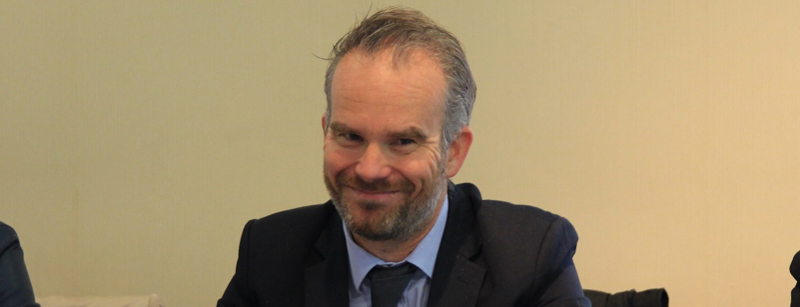
Pictured: Mr. Anthony Manwaring, Counselor of Legal Affairs of the French Embassy in China
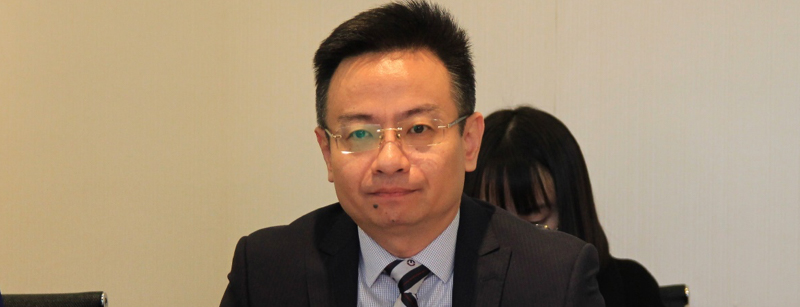
Pictured: Professor Liu Fei, Dean of the China-EU School of Law
The seminar was divided into three units: “the Effectiveness Improvement of Administrative Litigation – French Practice”, “the Effectiveness Improvement of Administrative Litigation – Chinese Practice” and “the Microcosmic View on the Effectiveness Improvement of Administrative Litigation: Taking Environmental Protection as an Example”.
In the first unit, Ms. Christine Maugüé, President of the Seventh Appeal Court of the Supreme Administrative Court of France, made a keynote speech entitled in “EffectivenessReform of Administrative Litigation in France”. The report summarises the changes and measures achieved by France over the past 20 years on the effectiveness of administrative litigation in legislative and judicial levels. She highlighted three initiatives: the enriched power of the executive judges, the reform on the emergency review process and the constitutional priority review mechanism.

Pictured: Mrs. Christine Maugüé, President of the Seventh Appeals Court of the Supreme Administrative Court of France.
Lawyer Bernard LAURENT-BELLUE of the Paris Bar Association and Professor Pierre Mousseron of the University of Montpellier in France, then analysed several limitations of the effectiveness of French administrative litigation through three legal precedents of the Supreme Administrative Court and European Court of Human Rights in 2015, 2016 and 2018.
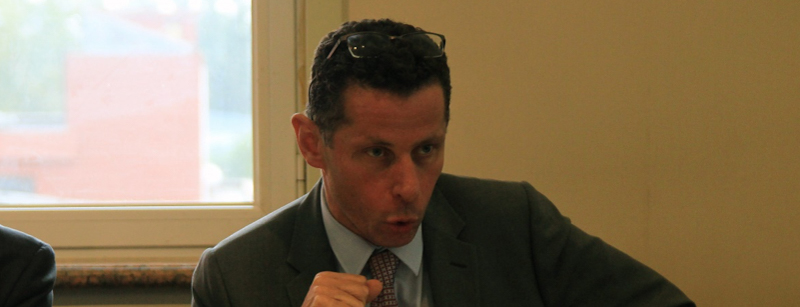
Pictured: Professor Pierre Mousseron, University of Montpellier in France
Based on the legal precedents, the two reporters believed that the limitations of the effectiveness of French administrative litigation are reflected in the following three aspects: the first is the restriction on the reasons for questioning the legality of normative administrative actions; the second is theindividual limitationof the effect of administrative litigation rights protection; the third is the controversies regarding the limitation of administrative litigation caused by the parties to the contract resorting to arbitration and evading administrative litigation.
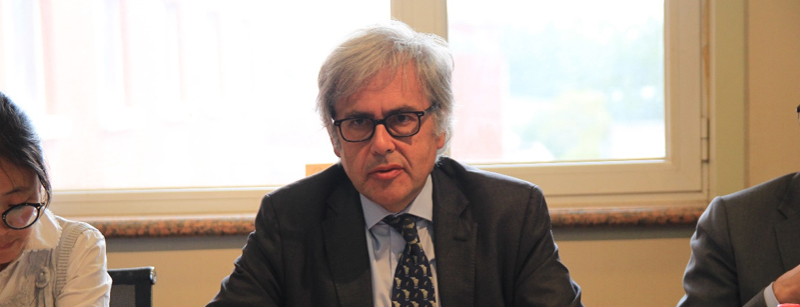
Pictured: Lawyer Bernard LAURENT-BELLUE of Paris Bar Assoc
Professor Pierre Mousseron first took the Tchokonito HAPPI case, decided by the European Court of Human Rights in 2015, as an example. In this case, the French Government lost. He pointed out that France still has institutional defects in certain areas relating to basic rights, which directly affects the actual effect of administrative litigation.Next, he took the Fosmax LNG case decided by the French Supreme Administrative Court on 9thNovember 2016 as an example. He analysed the phenomenon of the increasingly obvious practice of evading national justice due to arbitration in the field of international investment and potential risks thereof.As one of the presiding judges, President Maugüé analysed in detail the relationship between arbitration and administrative litigation in two respects; the legal basis and the effect of the judgment. To a large extent, he answered similar problems faced in China's practice.

Pictured: Zhu Mingzhe, Associate Professor, Law School of China University of Political Science and Law.

Pictured: Zhu Lin, Lecturer, Law School of China University of Political Science and Law.
Dr. Lin Danqiu of Zhejiang University exchanged views with President Maugüé on the functions of the trial, the duration of the trial and the relationship between the constitutional review and treaty review of the legal constitutional priority review mechanism in the French administrative litigation.

Pictured: Dr. Lin Danqiu, Zhejiang University
Professor Zhang Li then conducted in-depth discussions with the three French reporters on the relationship between the types of emergency review procedure, Article 6 of the European Convention on Human Rights (“the fair trial principles”) and the French domestic guarantee mechanism on entity rights. Later, professor Zhang Li conducted a more detailed discussion with the Chinese and foreign guests regarding the meeting point of the three systems and regarding three cases mentioned by the three reporters.
In the second unit, Professor Zhang Li gave a comprehensive introduction entitled the “China Administrative Litigation Effectiveness Reform” on the two revisions to Chinese administrative litigation laws in 2014 and 2017. Professor Zhang Li believes that administrative litigation is the only road to achieve the goal of constructing “the rule of law in China" and practice the constitutional purpose of human rights protection. The effectiveness of administrative litigation depends not only on the improvement of the litigation procedure but also on the independence, impartiality and authority of the trial organisation. While she affirmed that the 2014 law revision enriched the types of administrative litigation, expanded the scope of administrative litigation, broadened the qualifications of plaintiffs and comprehensively resolved the civil and administrative cross-cases, she also shared with the foreign experts at the meeting the difficulties faced by China in the process of conducting cross-regional, centralised jurisdiction pilots, in the reform of the registration system underthe post systemand the double defendant system in the process of reconsideration maintenance.
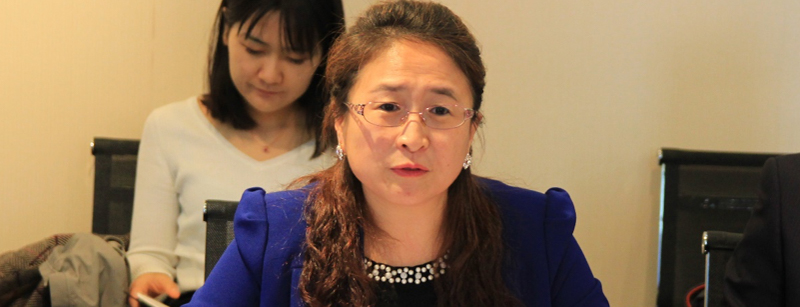
Pictured: Professor Zhang Li, the School of Law-based Government of China University of Political Science and Law
Next, Professor Cheng Xiezhong from the Law School of China University of Political Science and Law shared his analysis of the nature of China's administrative litigation and the subjective tendency of Chinese administrative litigation in the perspective of comparative law.
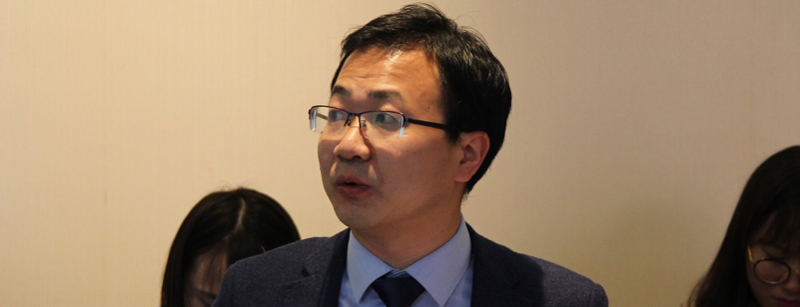
Pictured: Professor Cheng Xiezhong, Law School of China University of Political Science and Law.
In the talks, Associate Professor Zhang Li form the Law School of China University of Political Science and Law put forward two problems affecting the effectiveness of China's administrative litigation. One isprocedural idling, the other is the limited power and ability of the court.
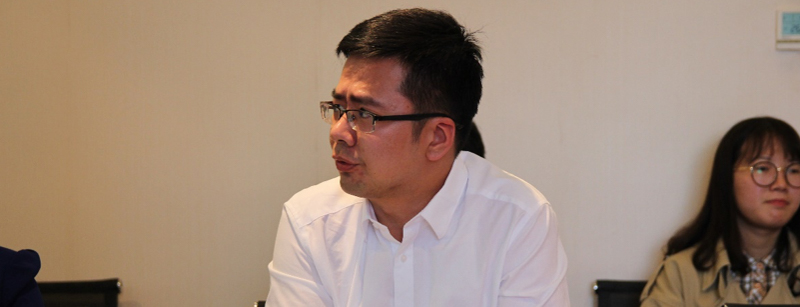
Pictured: Associate Professor Zhang Li, Law School of China University of Political Science and Law
Feng Yang, a postdoctoral fellow from Zhejiang University, asked Professor Cheng Xiezhong about the methodology of the analysis of the nature of administrative litigation in China. Afterwards, Chinese and foreign experts discussed the concrete administrative law system, such as the internal supervision of the court system,the public interest lawsuit brought by the procuratorateand the registration system.

Pictured: Feng Yang, a postdoctoral fellow from Zhejiang University
The theme of the third unit of the conference was “a microcosmic view in the improvement of the timeliness of administrative litigation: taking environmental protection as an example”. Firstly, Professor Béatrice Parance of the Law School of the 8th University of Paris made a speech on the topic of “Administrative Judges and Environmental Law”. In addition to specifying the path and means for administrative judges to promote the development of environmental law, she revealed the cooperation between the administrative judges and other courts including the Supreme Court and the Constitutional Council, in order to improve the effectiveness of litigation. She also specified that the French Administrative Court made active effortsin responding to the demands of environmental organisatins and of citizens.
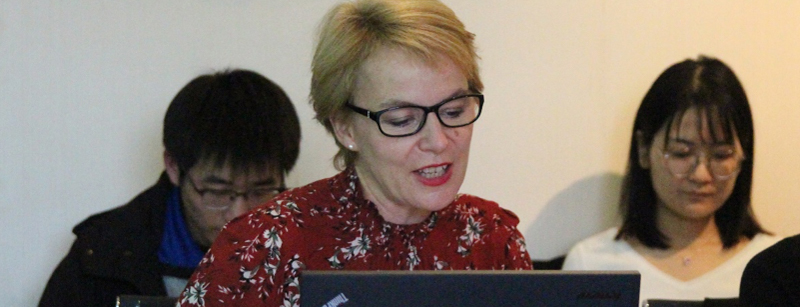
Pictured: Professor Béatrice Parance, Law School of the 8th University of Paris
Chen Peng, a lawyer at DS Avocats, put forward some questions to the French experts about the division of powers among different French courts in the field of environmental protection and the technical details of compensation for the ecological damages in the Erika oil pollution case in the French Supreme Court judgment in September 2012.
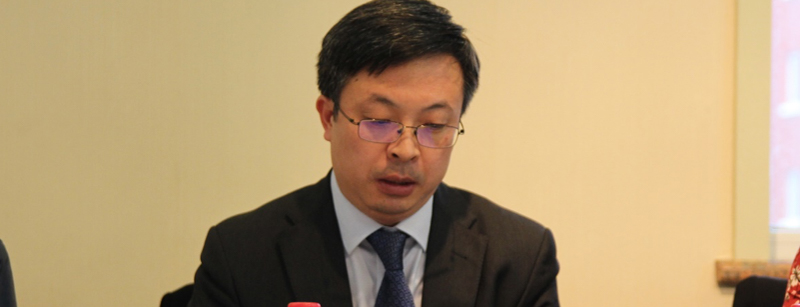
Pictured: Chen Peng, lawyer at DS Avocats
The lecturer Ma Yun from the Law School at China University of Political Science and Law gave a comprehensive introduction to China's system and Chinese practice on the environmental justice specialisation and environmental public interest litigation. Chinese and foreign experts then discussed in-depth issues such as the similarities and differences between the two countries' procuratorial systems, whether there were prosecutors in French administrative litigation and the legal attributes of public reporters in French administrative litigation.

Pictured:Ma Yun, Lecture, Law School at China University of Political Science and Law
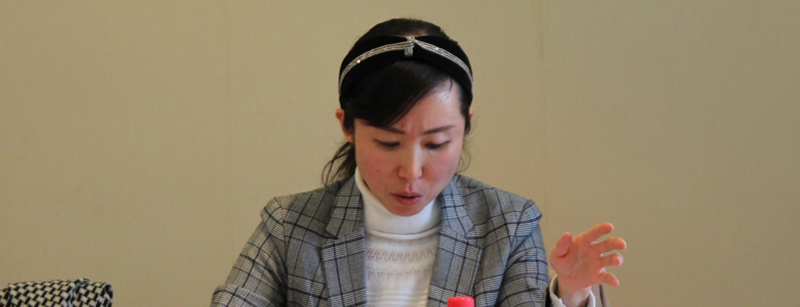
Pictured: Professor Zhu Lin, the School of Foreign Languages at China University of Political Science and Law
Finally, Professor Zhang Li gave a brief summary of the meeting and this seminar was successfully concluded.
Writting:Zhen Chaoyong (CESL 2017 double master student)
